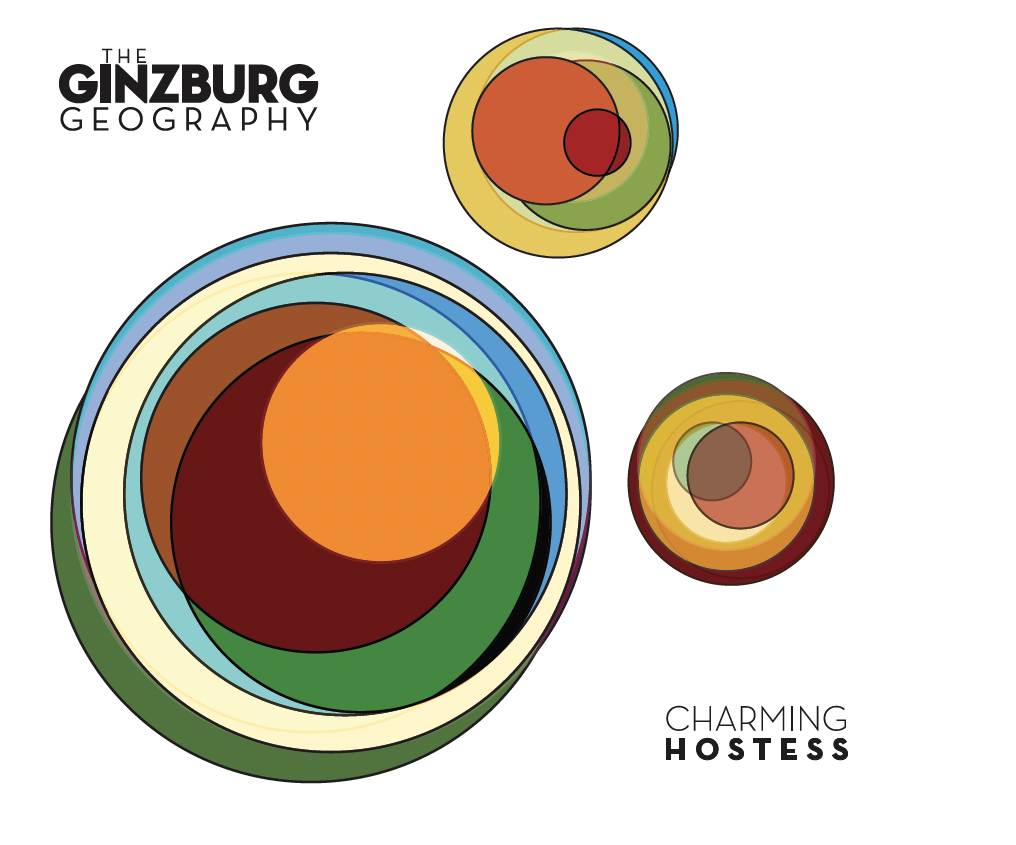 Image 1 of
Image 1 of


all you fascists bound to lose
Thank you for your support of Charming Hostess! Download the single from Charming Hostess’s new album, “The Ginzburg Geography”.
What sustains people in severely oppressive situations? How do you fight back when there seems to be no way to fight back? The Ginzburg Geography is based on the life and work of Natalia and Leone Ginzburg, Italian Jews famous for anti-fascist activism and intellectual brilliance. Soon after their marriage, they were sent into exile in remote Abruzzo, continuing to work clandestinely. When the Germans invaded Italy, the Ginzburgs went to Rome to continue their work. In 1944, Leone was captured, taken to prison and tortured to death by the Nazis. Jewlia sets the Ginzburgs’ writings, both public and private, to music.
The Ginzburg Geography approaches weighty subjects with raucous exuberance, exalting the human spirit not in spite of but as a counterbalance to the forces of hate, a vivacious light shining through oppressive darkness. Her sonic palette honors the Italian regional traditions of Turin, Abruzzo and Rome. She drew from Italian Jewish liturgy, which itself reflects and refracts the Christian sacred traditions surrounding it. She drew from Italian anti-fascist songs–work chants and resistance anthems. Jewish, Italian and American folk traditions, contemporary classical and radical punk – all dance and sing together with a communal spirit in Eisenberg’s music.
Thank you for your support of Charming Hostess! Download the single from Charming Hostess’s new album, “The Ginzburg Geography”.
What sustains people in severely oppressive situations? How do you fight back when there seems to be no way to fight back? The Ginzburg Geography is based on the life and work of Natalia and Leone Ginzburg, Italian Jews famous for anti-fascist activism and intellectual brilliance. Soon after their marriage, they were sent into exile in remote Abruzzo, continuing to work clandestinely. When the Germans invaded Italy, the Ginzburgs went to Rome to continue their work. In 1944, Leone was captured, taken to prison and tortured to death by the Nazis. Jewlia sets the Ginzburgs’ writings, both public and private, to music.
The Ginzburg Geography approaches weighty subjects with raucous exuberance, exalting the human spirit not in spite of but as a counterbalance to the forces of hate, a vivacious light shining through oppressive darkness. Her sonic palette honors the Italian regional traditions of Turin, Abruzzo and Rome. She drew from Italian Jewish liturgy, which itself reflects and refracts the Christian sacred traditions surrounding it. She drew from Italian anti-fascist songs–work chants and resistance anthems. Jewish, Italian and American folk traditions, contemporary classical and radical punk – all dance and sing together with a communal spirit in Eisenberg’s music.
Thank you for your support of Charming Hostess! Download the single from Charming Hostess’s new album, “The Ginzburg Geography”.
What sustains people in severely oppressive situations? How do you fight back when there seems to be no way to fight back? The Ginzburg Geography is based on the life and work of Natalia and Leone Ginzburg, Italian Jews famous for anti-fascist activism and intellectual brilliance. Soon after their marriage, they were sent into exile in remote Abruzzo, continuing to work clandestinely. When the Germans invaded Italy, the Ginzburgs went to Rome to continue their work. In 1944, Leone was captured, taken to prison and tortured to death by the Nazis. Jewlia sets the Ginzburgs’ writings, both public and private, to music.
The Ginzburg Geography approaches weighty subjects with raucous exuberance, exalting the human spirit not in spite of but as a counterbalance to the forces of hate, a vivacious light shining through oppressive darkness. Her sonic palette honors the Italian regional traditions of Turin, Abruzzo and Rome. She drew from Italian Jewish liturgy, which itself reflects and refracts the Christian sacred traditions surrounding it. She drew from Italian anti-fascist songs–work chants and resistance anthems. Jewish, Italian and American folk traditions, contemporary classical and radical punk – all dance and sing together with a communal spirit in Eisenberg’s music.